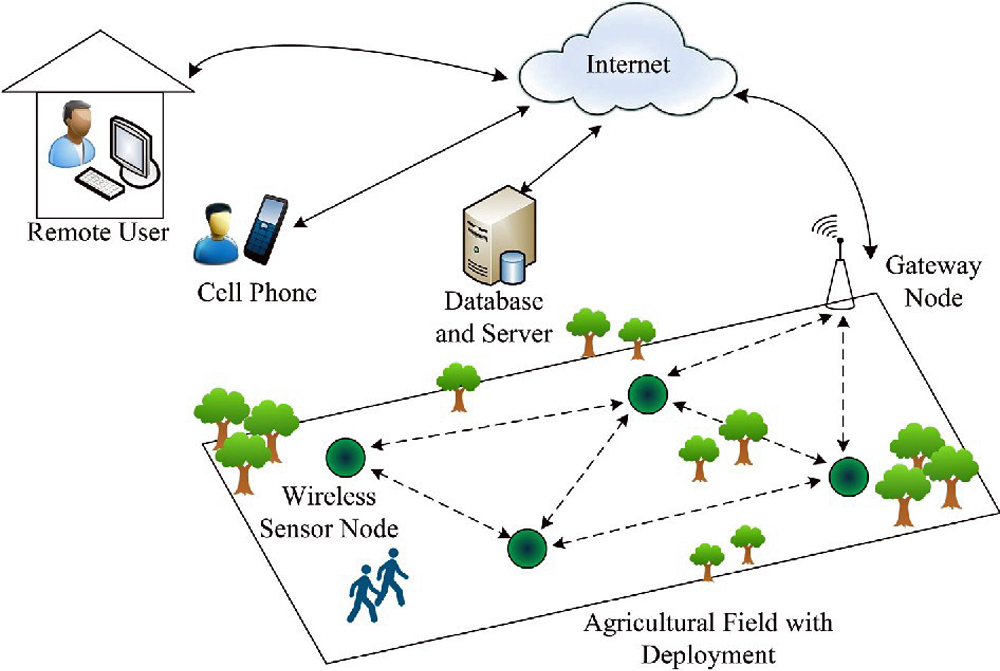
Revolutionizing Connectivity: The Marvels of Wireless Smart Sensors
In the fast-evolving landscape of smart technology, wireless smart sensors have emerged as a catalyst for innovation, transforming the way we interact with our environment. These compact, versatile devices play a crucial role in creating interconnected ecosystems that enhance efficiency, convenience, and overall user experience.
Unleashing the Power of Wireless Connectivity
Wireless smart sensors operate without the constraints of physical cables, leveraging wireless communication protocols such as Bluetooth, Zigbee, or Wi-Fi. This freedom from wired connections not only simplifies installation but also allows for flexible placement, enabling the creation of sensor networks that can seamlessly cover large areas.
Versatility Across Industries
The adaptability of wireless smart sensors transcends industry boundaries. From smart homes and industrial automation to healthcare and agriculture, these sensors find applications in diverse sectors. Their ability to collect and transmit data wirelessly makes them indispensable for monitoring, control, and optimization across various domains.
Real-time Data Acquisition
One of the key advantages of wireless smart sensors is their capability for real-time data acquisition. Equipped with various sensors like temperature, humidity, motion, and more, these devices continuously gather information from their surroundings. This real-time data is invaluable for making informed decisions, optimizing processes, and responding promptly to changes.
Seamless Integration with IoT Ecosystems
Wireless smart sensors are integral components of the Internet of Things (IoT) ecosystems. They seamlessly integrate with other smart devices, creating interconnected networks that can be remotely monitored and controlled. This interoperability enhances the overall efficiency and functionality of IoT solutions.
Enhancing Energy Efficiency in Smart Buildings
In the realm of smart buildings, wireless smart sensors play a pivotal role in optimizing energy usage. By monitoring occupancy, lighting conditions, and environmental factors, these sensors enable intelligent systems to adjust lighting, heating, and cooling in real-time. The result is not only enhanced comfort but also significant energy savings.
Precision Agriculture for Sustainable Farming
Agriculture is another sector benefiting from the deployment of wireless smart sensors. These sensors can monitor soil moisture, crop health, and environmental conditions. By providing farmers with real-time data, they empower precision agriculture practices, optimizing irrigation, fertilization, and pest control for more sustainable and efficient farming.
Healthcare Monitoring and Wearables
The healthcare industry leverages wireless smart sensors for remote patient monitoring and wearable devices. From tracking vital signs to monitoring medication adherence, these sensors contribute to personalized healthcare solutions. Their wireless nature ensures that patients can go about their daily lives while their health data is continuously monitored.
Challenges and Solutions in Wireless Sensor Networks
Despite their many benefits, wireless sensor networks face challenges such as security concerns, limited battery life, and potential interference. Advances in encryption technologies, energy-efficient design, and improved communication protocols address these challenges, making wireless smart sensors more robust and reliable.
Exploring the Future with Yakima Futures
For those interested in exploring the cutting-edge possibilities of wireless smart sensors, Yakima Futures offers a glimpse into the future. This platform showcases the integration of wireless sensor technologies into smart solutions, highlighting their role in shaping connected and intelligent environments.
Conclusion
In conclusion, the advent of wireless smart sensors marks a significant stride towards a more connected and efficient world. Their versatility, real-time capabilities, and seamless integration with IoT ecosystems make them indispensable in various industries. As technology continues to evolve, the potential applications of wireless smart sensors are boundless, promising a future where connectivity and intelligence converge for the benefit of humanity.
